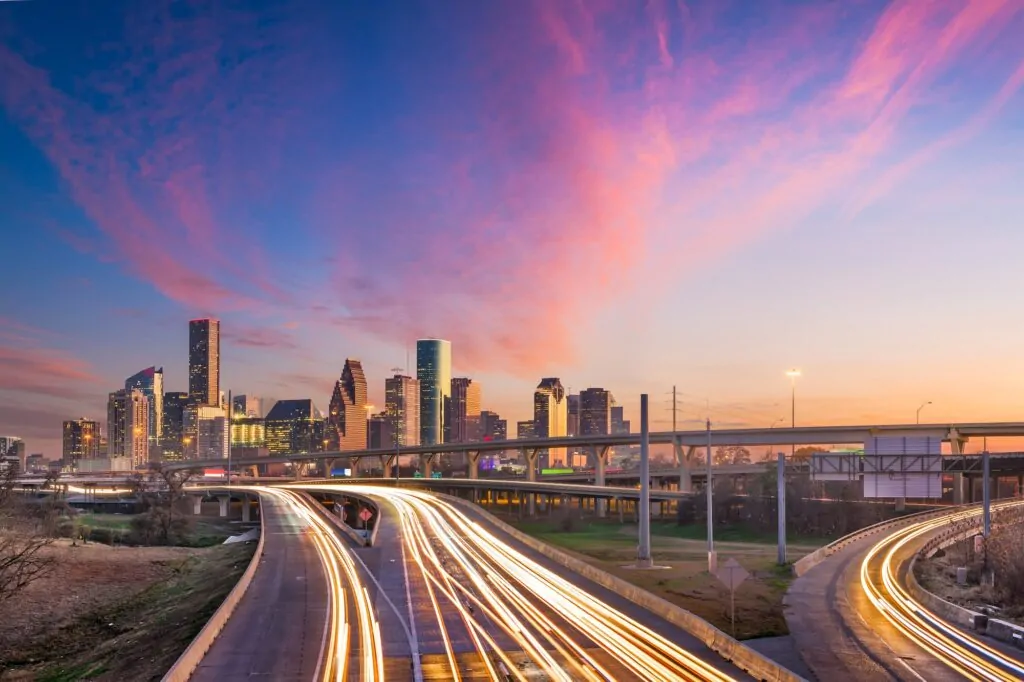Breaking the Silence: A Stand Against Human Trafficking in Southeast Texas Hotels
Table of Contents
Toggle
Provost Umphrey Lawyers: Champions Against Human Trafficking
Provost Umphrey Law Firm, renowned for its relentless pursuit of justice, has recently been in the spotlight for its stand against human trafficking in Southeast Texas hotels. The firm’s lawyers have filed lawsuits against several hotels, alleging that the staff ignored clear signs of human trafficking. This article aims to provide an in-depth analysis of these lawsuits, the role of hotels in human trafficking, and the implications for the hospitality industry.
The Unseen Side of Luxury: Human Trafficking in Hotels

In the glitz and glamour of the hospitality industry, a sinister issue has been steadily surfacing – human trafficking. Hotels, particularly those with lax security measures, provide an ideal environment for traffickers. They offer anonymity, easy access, and a transient clientele, making it difficult for authorities to detect and track illegal activities. The internet has played a pivotal role in the rise of human trafficking cases in hotels. Online platforms have made it easier for traffickers to advertise and sell their victims, often under the guise of escort services.
The Disturbing Reality: Hotel Guest Reviews
Hotel guest reviews often provide a glimpse into the reality of what’s happening behind closed doors. Here are some alarming reviews from guests who stayed at these hotels:

“The staff was very friendly, but this is not somewhere I would return to. There were no towels in my room, nothing in the kitchenette, and water on the floor. The check-in desk was barred up and there were ‘Beware of sex trafficking’ signs everywhere. The cost was inexpensive, but I did not feel safe here.”
“We thought this was a good brand but found out differently about this location. They put us in the back of the property. Lots of drugs and prostitutes. There were rooms inside the courtyard, but I don’t think they rented any of them.”
“Never again. What did you like most? Staff was rude. Staff basically looked the other way about what was going on at the hotel. Had to unplug the phone due to calls about being in the wrong room and individuals calling looking for the next score. Thought I was staying at a brothel and dope house. ”
These reviews paint a disturbing picture of what some guests have experienced at these hotels, further highlighting the urgent need for action.
The Legal Landscape: Holding Hotels Accountable
The Trafficking Victims Protection Act (TVPA), enacted in 2000 and reauthorized several times since, provides the legal framework for prosecuting human trafficking cases in the United States. It also allows victims to sue third parties, including hotels, that knowingly benefit from trafficking. In 2023, several high-profile lawsuits have been filed against hotels for their alleged involvement in human trafficking. These cases have not only brought the issue to the forefront but also set important legal precedents.
The Unsettling Connection: Hotels and Human Trafficking
Human trafficking, a form of modern-day slavery, is a global issue that affects millions of people each year. It’s a multi-billion dollar criminal industry that exploits vulnerable individuals for various forms of abuse, including forced labor and sex trafficking. The hospitality industry, particularly hotels, has unfortunately become a common venue for these illicit activities.
The Legal Fight Against Hotels: A Rising Tide of Lawsuits
In 2023, a wave of lawsuits has been filed against hotels across the United States, accusing them of facilitating human trafficking. Over 40 hotels are facing legal repercussions for their alleged involvement in human trafficking. These lawsuits argue that the hotels either knew or should have known that trafficking was occurring on their premises and did nothing to stop it.
The Role of Legislation: Changes in the Legal Landscape
Legislation plays a crucial role in the fight against human trafficking. In Florida, a bill that allows lawsuits over sex trafficking was introduced, but hotels were removed from the bill, as reported by the Sun-Sentinel. This decision sparked controversy, as sex trafficking often takes place inside hotel rooms more than any other place.
Major Hotel Chains Involved in Lawsuits

Several major hotel chains have been implicated in lawsuits related to human trafficking. These include Wyndham Hotels & Resorts, Red Roof Inn, G6 Hospitality, Choice Hotels, Marriott, Hilton, Best Western, and Red Lion. These lawsuits have had a profound impact on the hotel industry, leading to increased awareness and changes in policies and practices.
The Impact on the Hotel Industry
The lawsuits and subsequent legislative changes in 2023 have profoundly shaken the hotel industry. Hotels are now more aware than ever of their potential role in facilitating human trafficking and the severe legal consequences of failing to prevent such activities. This awareness has led to the implementation of stricter policies and the training of staff to recognize the signs of human trafficking.
The Ethical Dilemma: Corporate Responsibility vs. Profit
Some hotels, driven by profit, may turn a blind eye to the signs of human trafficking. This raises serious ethical questions about corporate responsibility and the role of businesses in combating social issues.
Looking Ahead: The Path to Change
In light of the rising lawsuits, there have been calls for legislative reforms to strengthen the legal framework against human trafficking in hotels. Some hotels have taken proactive steps to combat human trafficking, including implementing stringent security measures and training their staff to recognize the signs of trafficking.
Knowledge Base
Frequently asked questions
Hotels, particularly those with lax security measures, provide an ideal environment for traffickers. They offer anonymity, easy access, and a transient clientele, making it difficult for authorities to detect and track illegal activities.
In 2023, a wave of lawsuits has been filed against hotels across the United States, accusing them of facilitating human trafficking. Over 40 hotels are facing legal repercussions for their alleged involvement in human trafficking.
These lawsuits have had a profound impact on the hotel industry, leading to increased awareness and changes in policies and practices. Hotels are now more aware than ever of their potential role in facilitating human trafficking and the severe legal consequences of failing to prevent such activities.
Some hotels have taken proactive steps to combat human trafficking, including implementing stringent security measures ex ID scanners, and training their staff to recognize the signs of trafficking.
Legislation plays a crucial role in the fight against human trafficking. It provides the legal framework for prosecuting human trafficking cases and allows victims to sue third parties, including hotels, that knowingly benefit from trafficking.
Some hotels, driven by profit, may turn a blind eye to the signs of human trafficking. This raises serious ethical questions about corporate responsibility and the role of businesses in combating social issues.
